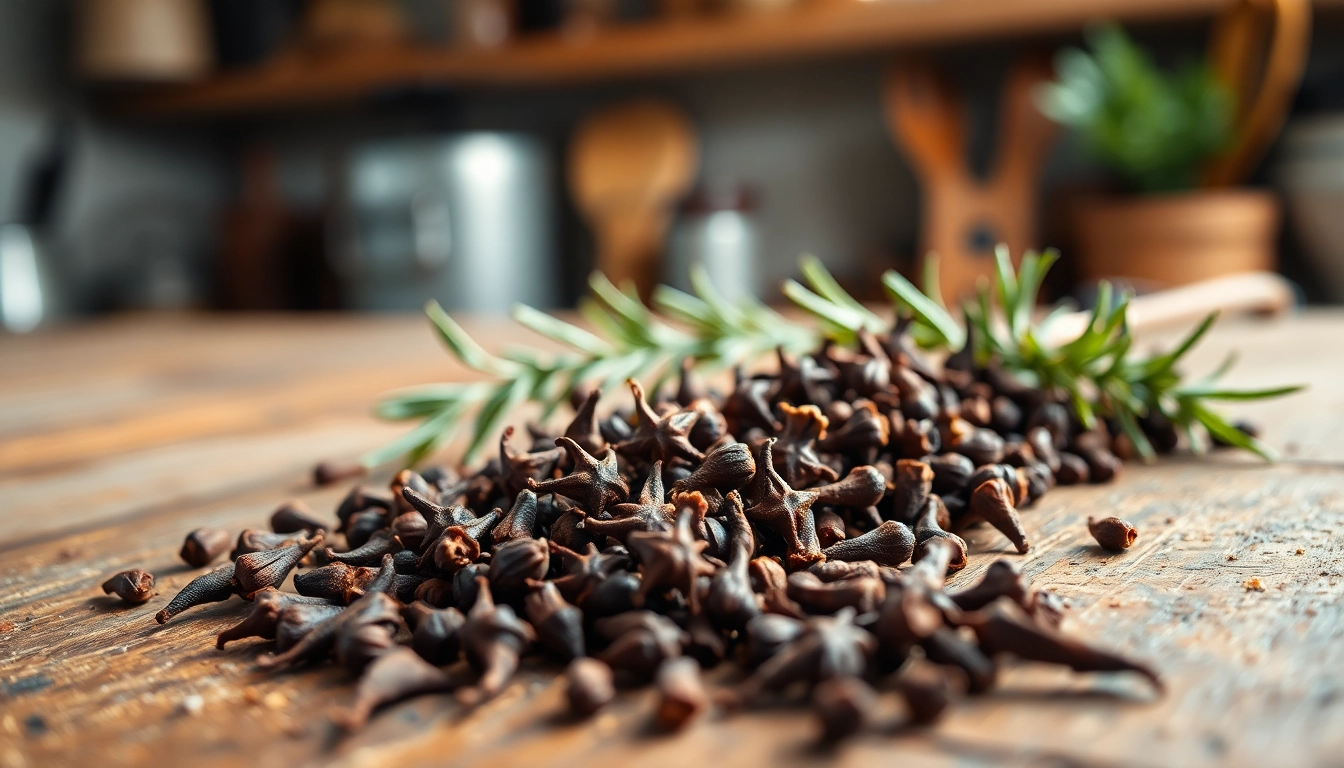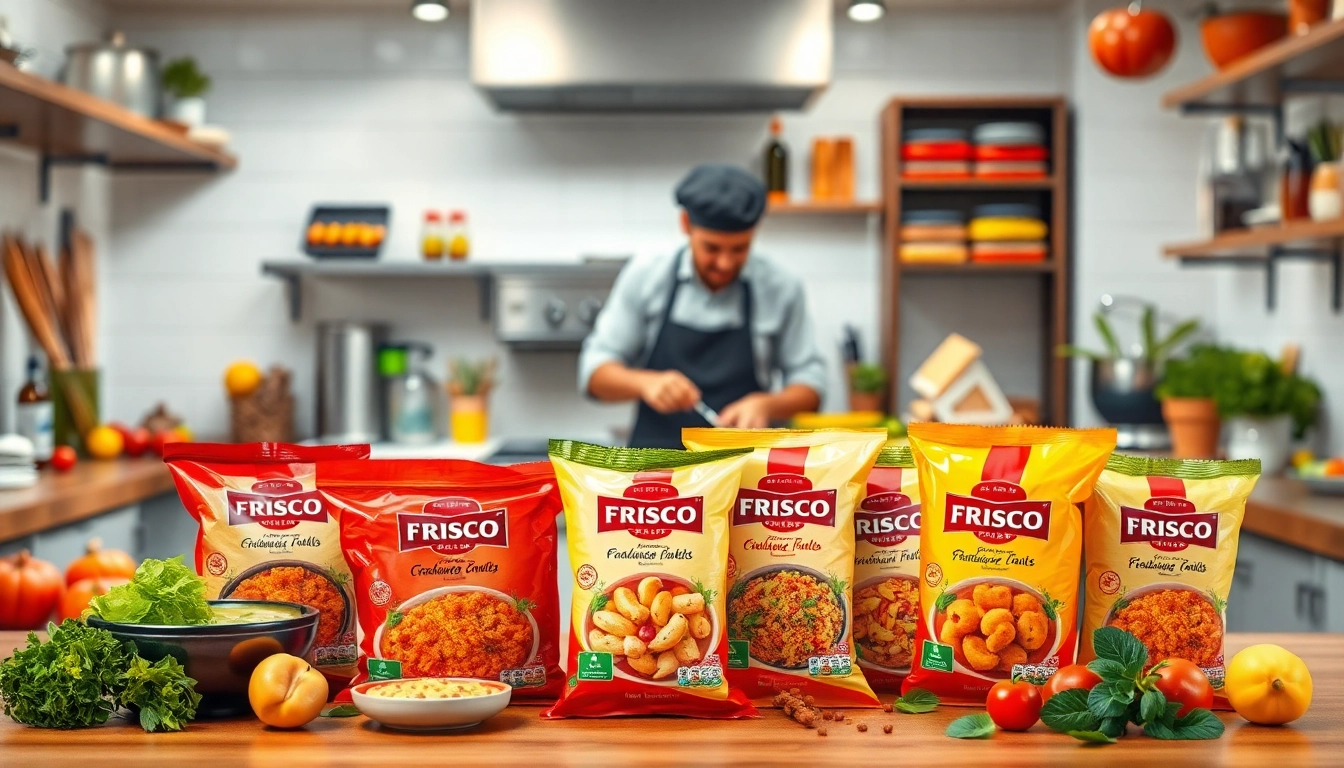
Understanding Cloves: Origins and Characteristics
1. The Botanical Background of Cloves
Cloves are the aromatic flower buds of the Syzygium aromaticum tree, which belongs to the family Myrtaceae. Native to the Maluku Islands, or Moluccas, in Indonesia, these buds have grown to be a crucial spice worldwide. They are harvested while still immature and then sun-dried until they turn a deep reddish-brown color. Their unique flavor and aromatic profile are due to the presence of eugenol, which comprises a significant part of their volatile oil composition. Because of their warm and aromatic character, cloves are widely utilized in various culinary traditions and industries, including perfumery and pharmaceuticals.
2. Nutritional Profile and Chemical Composition
The health benefits of cloves are largely attributed to their dense nutritional profile. A typical serving of cloves (about 2 grams) contains:
- Manganese: 30.9% of the Daily Value (DV)
- Vitamin K: 2.5% of the DV
- Omega-3 fatty acids, magnesium, calcium, and fiber in trace amounts
Cloves are particularly rich in antioxidants, which help combat oxidative stress in the body. The primary active compound, eugenol, plays a significant role in the medicinal properties attributed to cloves and has been shown to possess anti-inflammatory, antimicrobial, and analgesic effects.
3. Varieties of Cloves and Their Uses
There are primarily two main varieties of cloves used globally: Maluku (or Indonesian) cloves and Zanzibar cloves. The Maluku variety is more prevalent in culinary practices beyond Southeast Asia, whereas Zanzibar cloves are noted for their strong flavor and are predominantly used in Middle Eastern and African cuisines. Cloves can be found in several forms, including whole cloves, clove oil, and ground cloves, each offering distinct uses in cooking, baking, and natural remedies.
Health Benefits of Cloves
1. Antioxidant Properties and Health Enhancements
Cloves stand out as a powerhouse of antioxidants. These compounds help protect the body from free radicals, which can cause cellular damage leading to various chronic diseases. Regular consumption of cloves has been linked to improved health outcomes, including:
- Reduced inflammation and pain, especially for those suffering from arthritis.
- Improved liver health, as eugenol may assist in the detoxification process.
- Support of cardiovascular health by regulating blood pressure and improving circulation.
2. Cloves and Digestive Health
Cloves have been traditionally used to aid digestion. They help promote the production of digestive enzymes, which facilitates better nutrient absorption. Additionally, their anti-inflammatory properties help soothe the gastrointestinal tract, making cloves useful for alleviating gas, bloating, and indigestion. Drinking clove-infused water, especially before bedtime, has gained attention for its potential to ease digestive issues and promote better metabolism.
3. Remedies Involving Clove Oil
Clove oil, derived from the buds, is renowned for its potent analgesic properties, primarily used to relieve dental pain. A few drops applied to the affected tooth area can provide quick relief from discomfort. Clove oil is also utilized in aromatherapy to soothe headaches, invigorating energy and clarity in stressful situations. Safety caution is warranted; clove oil should be diluted before topical application due to its concentrated nature.
Culinary Applications of Cloves
1. Traditional and Modern Recipes Featuring Cloves
Cloves are a staple in many culinary traditions, enhancing both sweet and savory dishes. They are commonly featured in:
- Baking: Cloves add depth and warmth to spice cakes, gingerbread, and cookies.
- Curries and Stews: In Indian and Middle Eastern cuisines, whole cloves are often simmered with meats and vegetables.
- Infused Beverages: Cloves are integral to spiced teas and mulled wines, contributing to their complex flavor profile.
2. Pairing Cloves with Other Ingredients
Optimizing the flavor of cloves in cooking can be achieved by pairing them with complementary ingredients. Some classic pairings include:
- Citrus Fruits: The brightness of orange and lemon enhances the warm notes of cloves.
- Ginger and Nutmeg: Together, these spices create a robust flavor base, excellent for holiday recipes.
- Meat and Game: Cloves’ pungency works remarkably well with rich meats, such as beef and lamb, often found in traditional roasts.
3. Tips for Cooking with Whole Cloves
Whole cloves can be challenging to work with due to their intense flavor. Here are some tips:
- Use sparingly: Start with one or two whole cloves and adjust to taste.
- Infuse: For soups and sauces, add whole cloves at the beginning and remove them before serving to eliminate overpowering flavor.
- Combine with other spices: Incorporating cloves with milder spices allows for a balanced taste profile.
How to Store and Preserve Cloves
1. Best Practices for Storing Whole Cloves
To maintain the potency and flavor of cloves, proper storage is crucial. Here are some best practices:
- Airtight Containers: Store whole cloves in an airtight jar away from light and moisture to prolong freshness.
- Cool, Dark Place: Ideal storage conditions include a pantry or spice drawer—not near heat sources.
2. Shelf Life and Usage Tips
Whole cloves can last up to three to four years if stored correctly. Ground cloves, however, have a shorter shelf life of around six months due to their increased surface area, which leads to faster degradation. For optimal flavor and potency, grind whole cloves just before use.
3. Recognizing Quality Clove Products
When purchasing cloves, look for:
- Color: Dark brown indicates ripeness and quality.
- Fragrance: Fresh cloves should emit a strong, sweet aroma. A lack of scent indicates a loss of flavor and quality.
- Source: Choose reputable brands that provide information about origin and cultivation practices.
Exploring the Cultural Significance of Cloves
1. Cloves in Traditional Medicine
Historically, cloves have played a pivotal role in traditional medicine systems, including Ayurveda and traditional Chinese medicine, due to their therapeutic properties. They were used to treat a variety of ailments such as digestive disorders, respiratory issues, and as a natural antiseptic. Many herbalists still advocate for the use of cloves in modern natural therapies today.
2. Cloves in Global Cuisines
Cloves have made their mark on global cuisines, with unique uses across cultures:
- Indian Cuisine: Integral to rich spice blends like garam masala.
- Middle Eastern Cuisine: Often added to rice pilafs and stews.
- Western Cuisine: Frequently used in holiday baking and beverages such as mulled wine and cider.
3. Historical Importance of Cloves in Trade
Cloves were once so valuable that they were worth their weight in gold. They were sought after by colonial powers, leading to their significant role in the historical spice trade. The struggle for control of the lucrative clove trade shaped world history, influencing economy, culture, and colonial expeditions in the 16th and 17th centuries.
Today, cloves remain a treasured spice, intertwined with our culinary practices, health remedies, and rich historical narratives. Understanding their origins, uses, and benefits is essential for anyone looking to harness the full potential of this unique spice.



